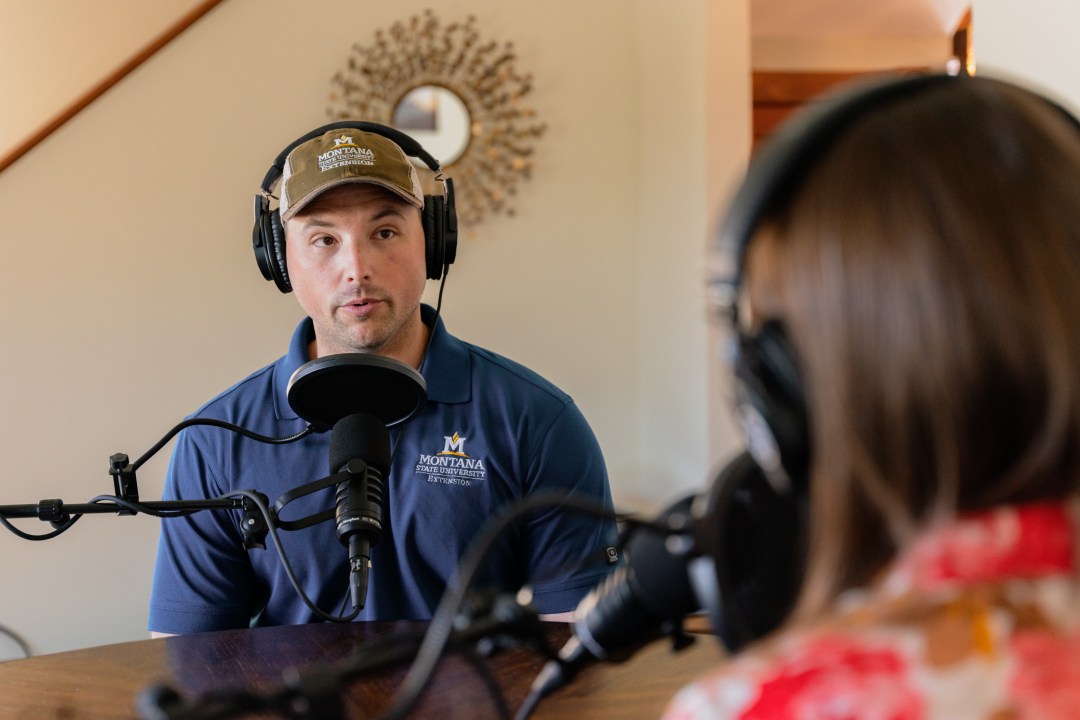

Wolves in the West: Finding common ground
In this episode of Down to Earth we’re talking to Jared Beaver, co-host of another podcast, Working Wild University a co-production between Montana State University Extension and the Western Landowners Alliance. The first season of the podcast takes on a hot-button issue: the presence of wolves on Western landscapes, and explores the economics of ranching, the importance of working lands for wildlife, the conflicts of values at the working land/wild land interface, and much more.
Jared Beaver is Wildlife Extension Specialist at Montana State University in Bozeman; he’s a wildlife biologist and manger, and he’s co-host with Alex Few, of the Working Wild U podcast.
Shownotes
4’42 how the podcast came into being
6’19 Jared’s history as a wildlife biologist/manager
7’17 what happened to wolves in the United States
8’45 problems with the Homestead Act of 1862
10’02 the economics of the fencing out and killing of wolves
11’16 the cultural fear and hatred of wolves
12’21 reintroduction of wolves into national parks and their migration onto grazing lands
13’05 variety of opinions about wolves among ranchers
14’16 ranches often have more wildlife habitat than farms that produce fruits, vegetables, and grains, and they use less water
15’09 the actual harm that wolves do to livestock
16’48 the economics of ranching
22’17 can holistic land management/rotational grazing protect against wolves, as bison protected themselves on the prairie?
24’04 conflicts of values about ranching, wildlife, and wolves–traditionalist vs. mutualist, conservation vs. preservation
27’02 what is the middle ground on this issue?
29’27 the coalitions of people getting together to work on this issue
32’15 the crucial ecological role played by working lands, i.e. ranches
33’03 the role of wolves in maintaining healthy ecosystems
34’47 the world of wolf watching around the borders of national parks
36’17 the problems that happen when wolves get habituated to people
37’51 what happens when wolves get used to eating livestock
39’24 the Four Cs approach: Compensation, Conflict Prevention, Control, and Collaboration
42’17 reactions to the podcast
photo credit: Zach Altman
More Episodes
Episode 164 – From Suburban Chicago to Rural Montana: the Journey of a Bison Rancher
From Suburban Chicago to Rural Montana: the Journey of a Bison Rancher Matt Skoglund was an attorney with a conservation non-profit, but over time was drawn to work on the land. With no prior agrarian experience he started a successful bison ranch using regenerative...
Episode 163 – A Matter of Conscience: Will Harris on Regenerating an Industrial Ranch
A Matter of Conscience: Will Harris on Regenerating an Industrial Ranch In his new book, Will Harris describes the moment when he saw that his industrial ranch was cruel to animals and bad for the land. Before he'd ever heard the phrase "regenerative grazing" he...
Episode 162 – The Robber Barons of Today’s Food Industries
The Robber Barons of Today's Food Industries Iowan Austin Frerick saw his home state transform from a world of farms to one of toxic factory food and hollowed out rural communities. Yet he offers optimism and real solutions. Austin Frerick grew up in Iowa, which in...



